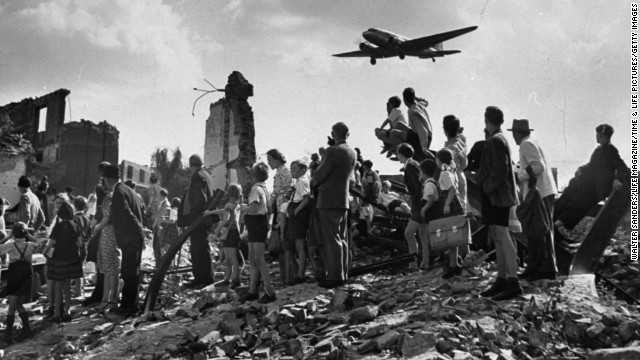Life Under Blockade: Examining The Crisis Of Hunger And Crime In Gaza

Table of Contents
The Hunger Crisis in Gaza
The Gaza blockade severely limits the import of food and essential supplies, resulting in widespread food insecurity and malnutrition, particularly among children and vulnerable populations. This persistent food shortage is a direct consequence of restricted access to essential resources.
Food Insecurity and Malnutrition
The consequences of limited food access are devastating:
- Reduced caloric intake: Leading to stunted growth, weakened immune systems, and increased susceptibility to diseases. Children are especially vulnerable, experiencing developmental delays and long-term health problems.
- Limited access to nutritious foods: Resulting in widespread micronutrient deficiencies, impacting physical and cognitive development. The lack of fresh fruits, vegetables, and proteins leads to a population suffering from malnutrition.
- Rising food prices: Making nutritious food unaffordable for many families, forcing them to choose between essential needs and adequate nutrition. The already strained economy, crippled by the blockade, further exacerbates this issue.
- Dependence on food aid: For many, food aid has become the primary source of sustenance, highlighting the severity and scale of the food crisis within the Gaza Strip. This reliance underscores the failure of the blockade to provide basic necessities.
Impact on Agriculture and Livelihoods
The Gaza blockade doesn't just impact food imports; it also cripples local agriculture, destroying livelihoods and exacerbating the food crisis:
- Reduced agricultural output: Restrictions on access to seeds, fertilizers, and agricultural equipment drastically reduce crop yields, leading to further food shortages. The limited arable land becomes increasingly unproductive.
- Loss of income for farmers and agricultural workers: The inability to cultivate and sell produce leads to widespread unemployment and poverty within the agricultural sector, a significant portion of Gaza's economy.
- Increased reliance on imported food: The decline in local agricultural production necessitates an even greater reliance on expensive imported food, deepening the already precarious food security situation. This creates a cycle of dependence and vulnerability.
The Rise of Crime in Gaza
The economic devastation caused by the Gaza blockade has driven many to engage in criminal activities simply to survive. This desperation is a direct result of the restrictions imposed.
Economic Hardship and Criminal Activity
The lack of economic opportunities fuels a rise in crime:
- Increased rates of theft, burglary, and other property crimes: Desperate individuals resort to stealing to meet basic needs, creating an environment of fear and insecurity.
- Rise in black market activities: The restrictions on imports create a thriving black market for essential goods, further undermining the formal economy and contributing to instability.
- Escalation of organized crime: The lack of economic opportunities fosters the growth of organized crime, creating even more significant challenges for security and governance.
Weakening of the Rule of Law
The Gaza blockade's impact extends beyond economic hardship; it also weakens the rule of law, creating a breeding ground for crime:
- Limited capacity of law enforcement agencies: The blockade restricts access to resources and training for law enforcement, hindering their ability to effectively address the rising crime rates.
- Breakdown of social structures and community support systems: The prolonged hardship weakens traditional social structures and support systems, leaving individuals more vulnerable to crime and violence.
- Increased social unrest and violence: The combination of economic hardship, limited governance, and lack of opportunity fuels social unrest and violence, exacerbating the security challenges.
The Interconnectedness of Hunger and Crime in Gaza
The hunger crisis and the rise in crime are inextricably linked. The desperation born from food insecurity directly fuels criminal activities.
- People resorting to crime to feed their families: The most basic human need – sustenance – becomes a driving force behind criminal behavior.
- Increased competition for scarce resources: Leading to conflict and violence as individuals and communities compete for limited resources.
- The cycle of poverty and crime: Perpetuated by the Gaza blockade, creating a vicious cycle that is difficult to break.
Conclusion
The ongoing Gaza blockade is a humanitarian disaster, resulting in a severe hunger crisis and a surge in crime. The interconnected nature of these two problems underscores the urgent need for international intervention. Addressing the root causes of this crisis requires a concerted effort to lift the Gaza blockade, ensuring access to food, essential goods, and economic opportunities for the people of Gaza. Ignoring the suffering caused by the Gaza blockade is not an option; understanding the realities of life under this blockade is crucial for advocating for change and creating a sustainable future for the population. We must demand an end to the Gaza blockade and work towards lasting solutions to alleviate the suffering caused by this devastating situation. Let's actively campaign for an end to the Gaza siege and support initiatives aimed at providing humanitarian aid and promoting sustainable development.

Featured Posts
-
 Muellers Next Move Potential Leagues And Clubs Considered Post Bayern
May 11, 2025
Muellers Next Move Potential Leagues And Clubs Considered Post Bayern
May 11, 2025 -
 Aaron Judges Record Breaking Start A New Chapter In Yankees History
May 11, 2025
Aaron Judges Record Breaking Start A New Chapter In Yankees History
May 11, 2025 -
 The Forgotten Mtv Comedy Series Alex Winters Early Work
May 11, 2025
The Forgotten Mtv Comedy Series Alex Winters Early Work
May 11, 2025 -
 Fin D Une Epoque Thomas Mueller Quitte Le Bayern Munich
May 11, 2025
Fin D Une Epoque Thomas Mueller Quitte Le Bayern Munich
May 11, 2025 -
 Plei Of Nba Pliris Odigos Gia Ta Zeygaria And Tis Imerominies Agonon
May 11, 2025
Plei Of Nba Pliris Odigos Gia Ta Zeygaria And Tis Imerominies Agonon
May 11, 2025
